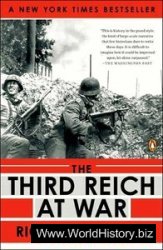We owe the survival of all early Elizabethan interludes to the London book market. Most were entered into the Stationers’ Register and subsequently printed in at least one edition between 1560 and 1580. Their printers were familiar figures, most of them setting up their trade and bookstalls in St Paul’s churchyard and nearby Paternoster Row, where Londoners could find moral interludes on shelves alongside prose tracts and sermons addressing the same economic abuses (H. Bennett 1965: 256). While intended for a reading audience, they do not appear to have sold particularly well, with only Like Will to Like going into more than one edition (Grantley 2004: 196). Indeed, plays made up a very small fraction of Elizabethan published writings. The previous section of this essay indicates the extent to which their subject matter and tone correspond with those in homiletic and devotional works which dwell on the spiritual consequences of economic wrongdoing.
All of the known authors of these interludes appear to have been clergymen with some connection with the book trade, either as prose-writers or otherwise. Ulpian Fulwell and Thomas Lupton both wrote works of Protestant religious propaganda, while George Wapull is the first known clerk of the Stationers’ Company, and William Wager was a warden for the Stationers’ in 1589.228 These playwrights were supported, perhaps directly sponsored, by prominent Protestant patrons, notably the Earl of Leicester and Lord Burghley (P. White 1993: 70-1). Wager was a popular London preacher who also served as master on Barnet Grammar School, itself linked to Leicester. Fulwell may have been a West Country member of Burghley’s circle. While rector of St Andrew’s parish in Naunton, Gloucestershire, Fulwell dedicated The Flower of Fame and Ars adulandi; or, The Art of Flattery to Burghley and to his wife, Lady Mildred, respectively. It is now well known that both Leicester and Burghley were involved in protecting and patronizing advanced Protestants. At the very least, then, these plays fit within the Protestant print culture of the period and promoted the same aims as non-dramatic religious writing.
Until the 1950s, most scholars dismissed these moral interludes as closet plays, operating on the assumption that their Puritan sympathies were incompatible with any tolerance for theatrical performance. However, we now know that even the more moderate Presbyterians were supportive of plays, with, indeed, The Tide Tarrieth No Man adopting an anti-episcopal stance (P. White 1993: 93-4). More importantly, these interludes were written for the stage. On their title page they are advertised as suitable for acting troupes of anywhere between four and seven actors (Bevington 1962: 68-85). It is generally assumed that professional troupes were targeted because of the interludes’ meticulous approach to doubling of roles, making them attractive to touring troupes, but the plays were likely performed by various acting groups, amateur as well as professional.




 World History
World History









